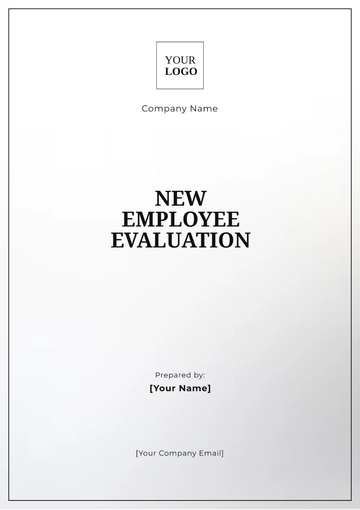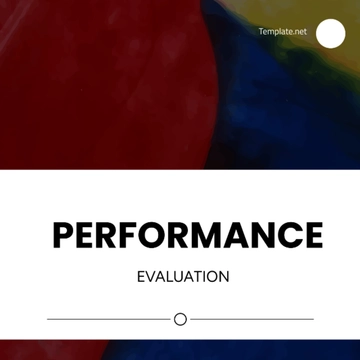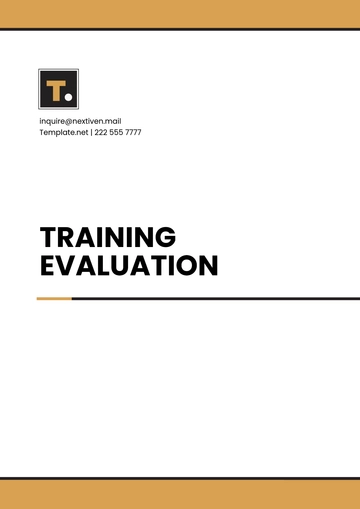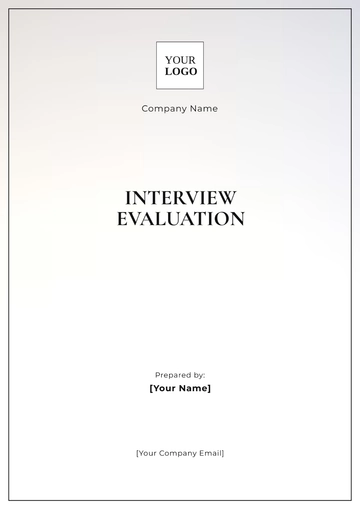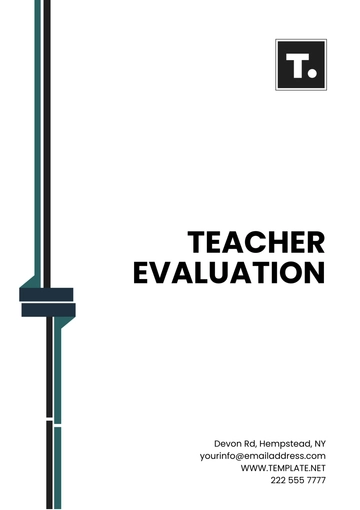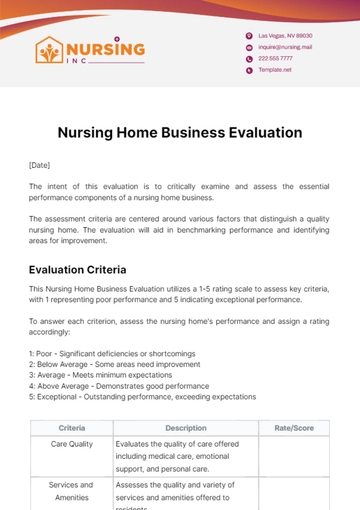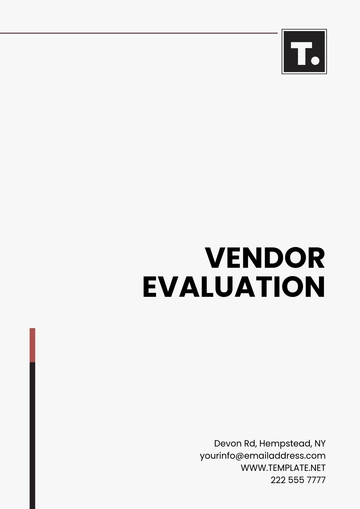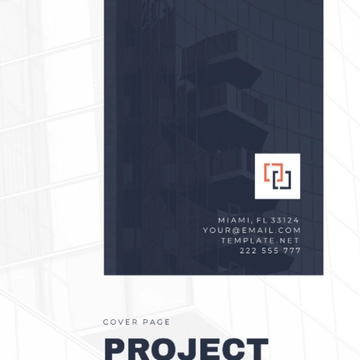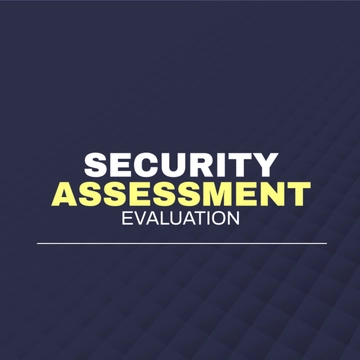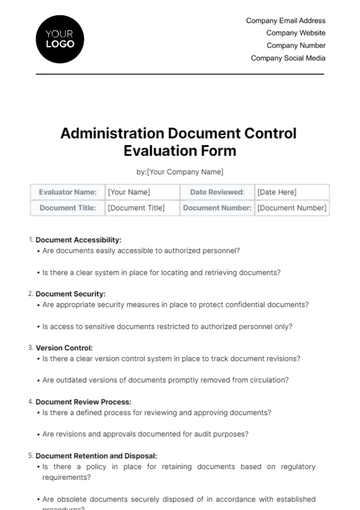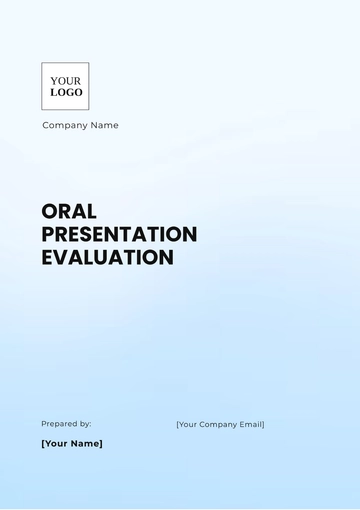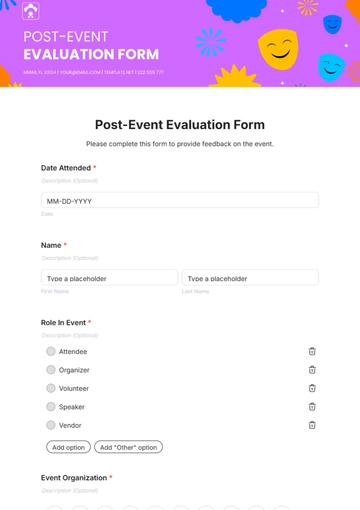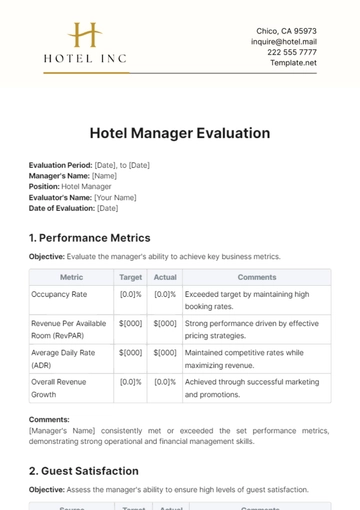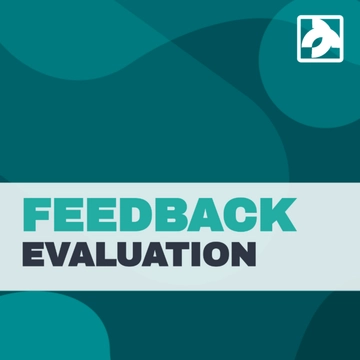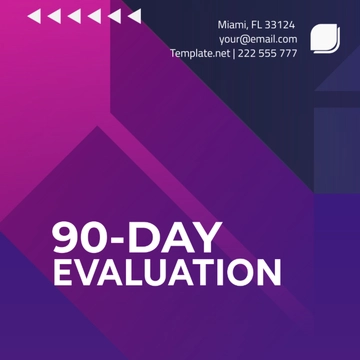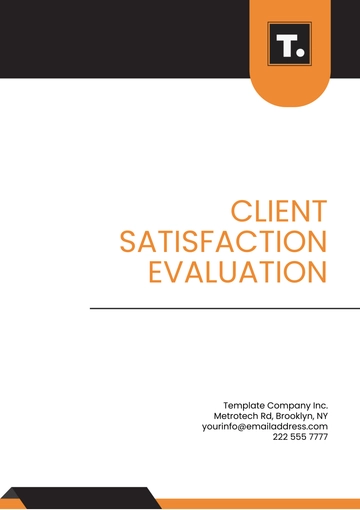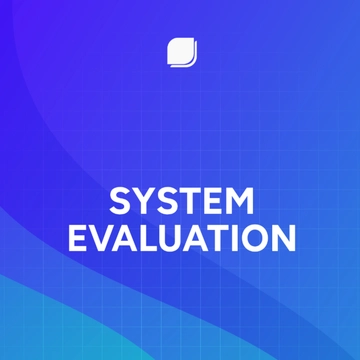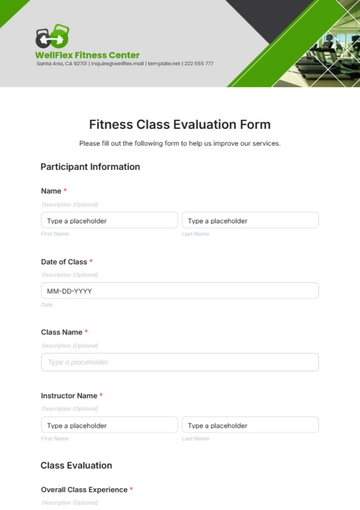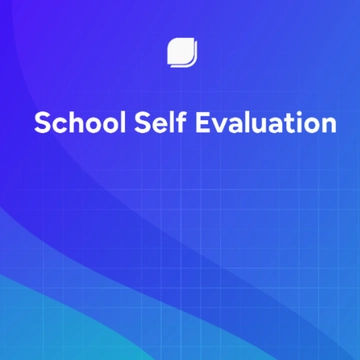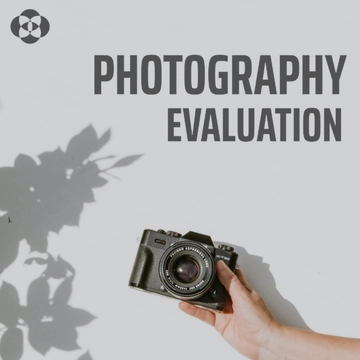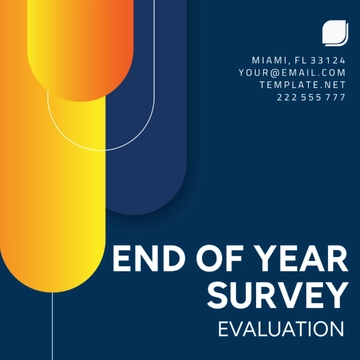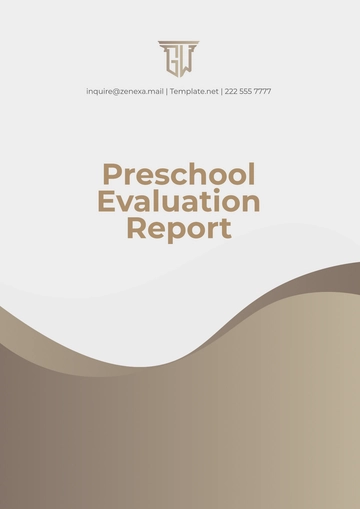Free Marketing Event Vendor Evaluation Report
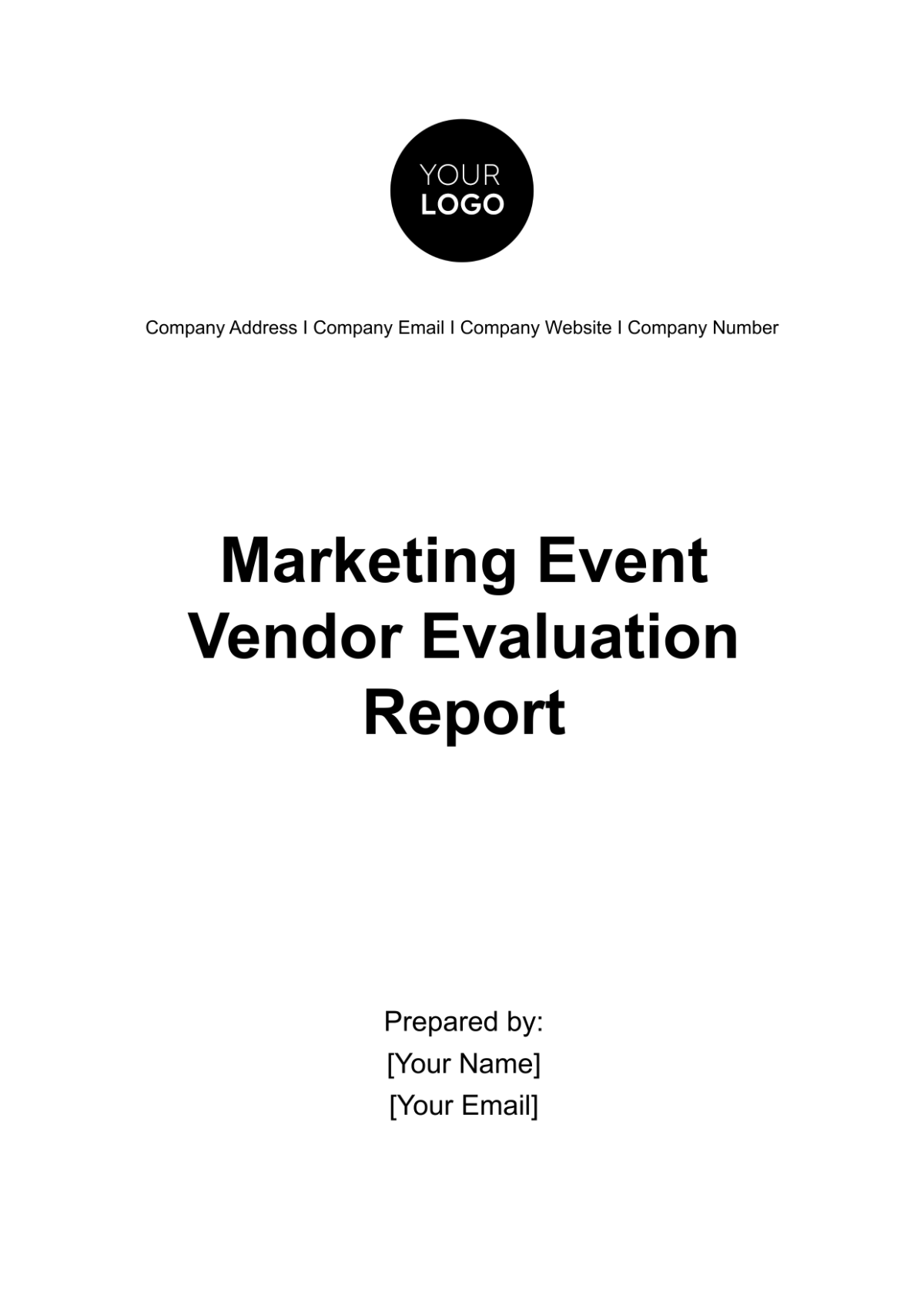
Executive Summary
The Executive Summary serves as a concise yet comprehensive overview of the Marketing Event Vendor Evaluation Report. It condenses the main points and findings of the report into a readily digestible format, offering readers a quick glimpse into the vendor evaluation process.
In this section, we present the essential highlights of the report:
Objective: The primary objective of this evaluation is to identify the most suitable vendor for our upcoming marketing event, ensuring its success and alignment with our goals.
Criteria: We have established a set of specific criteria that vendors will be assessed against. These criteria have been carefully selected to match the unique requirements and objectives of our event.
Methodology: The report outlines the rigorous evaluation process undertaken to assess each vendor, including data collection methods, weighting of criteria, and the overall approach employed.
Vendor Recommendations: The report provides recommendations for the selection of the most appropriate vendor based on the evaluation results.
Conclusion: We conclude this section by summarizing the report's key findings and the recommended vendor for our marketing event.
Introduction
A. Background
To set the stage for the vendor evaluation, it's crucial to understand the background of our marketing event. The event, scheduled for June 10, 2050, is a significant milestone in our marketing strategy. It aims to identify the most suitable vendor for our upcoming marketing event, and its success hinges on the contributions of various vendors who will play a pivotal role in its execution.
B. Objectives
The objectives of this vendor evaluation are multifaceted. We aim to achieve the following:
Vendor Selection: Identify and select a vendor who not only meets but also exceeds our expectations in delivering services/products essential for the event's success.
Cost-efficiency: Ensure that the chosen vendor offers competitive pricing while maintaining a high standard of quality.
Alignment with Event Goals: Assess how well each vendor aligns with the goals and objectives of the marketing event, considering factors such as brand synergy and target audience appeal.
Risk Mitigation: Evaluate each vendor's ability to mitigate potential risks or challenges that may arise during the event, ensuring a smooth and trouble-free execution.
Long-term Relationship: Consider the potential for establishing a long-term partnership with the selected vendor, as continuity and reliability are critical for our future events.
In the subsequent sections of this report, we will delve into the details of the vendor evaluation process, including the selection criteria, methodology, and the results, culminating in a well-informed recommendation for the best-suited vendor for our upcoming marketing event.
Vendor Selection Criteria
A. Criteria Definition
The criteria employed for the evaluation of marketing event vendors have been meticulously defined to ensure a comprehensive and objective assessment. These criteria are as follows:
Experience and Track Record: This criterion assesses the vendor's past experience in handling similar events, their track record of successful executions, and the reputation they hold in the industry.
Service/Product Quality: We consider the quality and innovation of the services or products provided by the vendor, emphasizing their ability to meet and exceed our event's requirements.
Pricing and Cost Efficiency: This criterion evaluates the vendor's pricing structure, ensuring it aligns with our budgetary constraints while maintaining high value for cost.
Resource Capability: We assess the vendor's resources, including personnel, equipment, and facilities, to determine their capacity to meet the demands of our event.
Flexibility and Adaptability: This criterion gauges the vendor's ability to adapt to changing circumstances and meet our evolving needs during the event planning and execution phases.
Client References and Testimonials: Vendor references and testimonials from previous clients are examined to gain insights into their performance, reliability, and client satisfaction.
B. Weighting
To assign appropriate weightage to each criterion, we have carefully considered the relative importance of these factors in achieving our event's objectives. The weightings have been determined as follows:
The weightings emphasize the significance of service/product quality and cost efficiency, reflecting our commitment to delivering a successful and cost-effective marketing event.
Vendor Evaluation Process
A. Vendor Identification
The process of identifying potential vendors for our marketing event involved multiple steps:
Market Research: We conducted comprehensive market research to identify a pool of vendors that specialize in the services/products relevant to our event.
Referrals: We sought recommendations from industry experts, colleagues, and peers who have experience working with event vendors.
RFPs: Requests for Proposals (RFPs) were issued to shortlisted vendors, inviting them to submit detailed proposals outlining their capabilities and offerings.
B. Data Collection
To ensure an informed and data-driven evaluation, we employed various data collection methods:
Surveys: We distributed surveys to shortlisted vendors, requesting detailed information on their experience, pricing, and references.
Interviews: In-depth interviews were conducted with vendor representatives to gain insights into their processes, adaptability, and resource capabilities.
Document Review: We meticulously reviewed vendor proposals, contracts, and client references to gather relevant data.
C. Evaluation Methodology
Our evaluation methodology adheres to a systematic and transparent approach:
Scoring System: A standardized scoring system was developed to assess each vendor against the defined criteria. Scores were assigned based on the gathered data.
Weighted Calculation: Weighted calculations were applied to criterion scores according to the predetermined weightings.
Comprehensive Analysis: The final evaluation considered both quantitative scores and qualitative insights from interviews and references.
Vendor Evaluation Results
A. Vendor 1: ABC Corp
Evaluation Score
Upon a thorough evaluation of Vendor 1 against our predefined criteria and weighted calculations, the vendor received an overall score of 8. This score reflects the vendor's performance in meeting our event requirements.
Vendor 1 Evaluation Score Summary:
Criteria | Weighting (%) | Score (out of 10) |
Experience and Track Record | 20% | 9 |
Service/Product Quality | 25% | 8 |
Pricing and Cost Efficiency | 20% | 8 |
Resource Capability | 15% | 8 |
Flexibility and Adaptability | 10% | 7 |
Client References | 10% | 7 |
Strengths
Vendor 1 demonstrated several strengths during the evaluation process:
High-Quality Service/Product: Vendor 1's services/products were consistently praised for their quality and innovation, aligning well with our event's objectives.
Strong Track Record: The vendor has a solid track record of successfully executing similar events, indicating their reliability and expertise.
Competitive Pricing: Vendor 1's pricing structure is competitive, offering good value for our budget.
Areas for Improvement
While Vendor 1 excelled in several areas, there are still areas for improvement:
Resource Capacity: The vendor's resource capacity may need to be expanded to ensure they can accommodate the demands of our event effectively.
B. Vendor 2: Wayne Inc.
Evaluation Score
Upon a thorough evaluation of Vendor 2 against our predefined criteria and weighted calculations, the vendor received an overall score of 7.5 out of 10. This score reflects the vendor's performance in meeting our event requirements.
Vendor 2 Evaluation Score Summary:
Criteria | Weighting (%) | Score (out of 10) |
Experience and Track Record | 18% | 8 |
Service/Product Quality | 22% | 7.5 |
Pricing and Cost Efficiency | 19% | 7 |
Resource Capability | 16% | 7.5 |
Flexibility and Adaptability | 12% | 7 |
Client References | 13% | 8 |
Strengths
Vendor 2 demonstrated several strengths during the evaluation process:
Strong Track Record: They have a commendable track record of successfully executing similar events, showcasing their reliability and expertise.
Experience: Vendor 2 boasts a wealth of experience in the industry, having handled numerous events similar in scope to ours.
Positive Client References: Client references for Vendor 2 were consistently positive, highlighting their commitment to client satisfaction.
Areas for Improvement
While Vendor 2 has notable strengths, there are also areas where they can improve:
Pricing: While competitive, their pricing could be further optimized to align more closely with our budgetary constraints.
Flexibility: Some concerns were raised regarding their flexibility in accommodating last-minute changes, which could be improved.
Vendor Selection
A. Recommendation
Based on the evaluation results, it is recommended that we select Vendor 1 for our upcoming marketing event. Vendor 1 received the highest overall score and exhibited strengths in areas critical to the event's success.
B. Justification
The recommendation is justified by the following factors:
High Score: Vendor 1 achieved the highest overall score among all evaluated vendors, indicating their strong suitability for our event.
Service/Product Quality: Vendor 1's high-quality services/products align well with our event's goals, ensuring a positive attendee experience.
Competitive Pricing: Their competitive pricing ensures that we can manage event costs effectively while not compromising on quality.
Track Record: Vendor 1's track record of success instills confidence in their ability to deliver a successful event.
Areas for Improvement: The identified areas for improvement can be addressed through open communication and collaboration with Vendor
Conclusion
The evaluation of marketing event vendors has yielded valuable insights. Vendor 1 emerged as the top choice based on their overall score and alignment with our event objectives. However, Vendor 2 also displayed strengths and could be considered for future events with some improvements.
Appendices
The appendices section includes additional information and data that support the evaluation process. It may contain:
Detailed vendor proposals from Vendor 1 and Vendor 2.
Survey questionnaires used for data collection.
Interview transcripts with vendor representatives.
Client references and testimonials for both vendors.
Any other relevant documents or charts that provide context to the evaluation process.
- 100% Customizable, free editor
- Access 1 Million+ Templates, photo’s & graphics
- Download or share as a template
- Click and replace photos, graphics, text, backgrounds
- Resize, crop, AI write & more
- Access advanced editor
Discover the ultimate tool for evaluating marketing event vendors with Template.net's Marketing Event Vendor Evaluation Report Template. Crafted for efficiency, this editable and customizable template ensures seamless assessment of vendor performance. Elevate your event planning process with ease, utilizing our AI Editor Tool to personalize and fine-tune every detail effortlessly.
